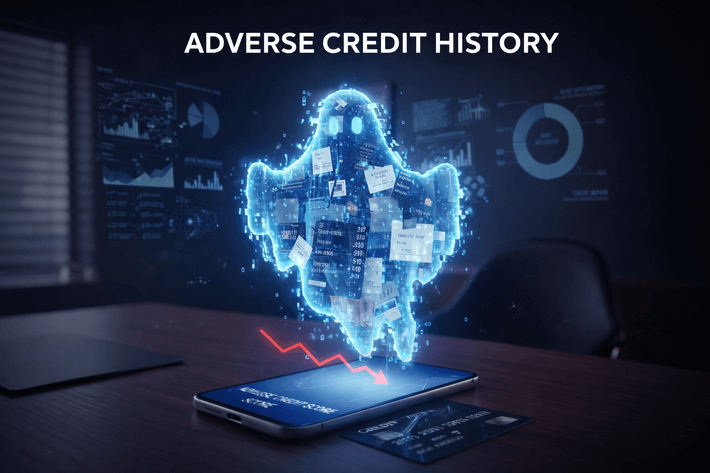Should You Get a Personal Loan?
Personal loans are a suitable fix for numerous budgetary predicaments, like financing substantial purchases or consolidating debt. But before you apply for one, it’s crucial to understand how they work and the potential risks.
Good Reasons To Take a Personal Loan
There are some situations where a getting a personal loan can be a good idea:
1. Credit Card Debt Consolidation
Credit card debt consolidation is the process of combining multiple debts into a single monthly payment. Credit card debt consolidation, thus, allows you to repay your debt faster.
Personal loans tend to charge lower interest rates than credit cards. Another advantage of consolidating your credit card debt with a personal loan is that you may be able to get a fixed interest rate on your monthly payments.
As a way to consolidate debt, people sometimes resort to balance transfers instead of personal loans.
2. Home Improvement and Repairs
A personal loan can be a good option for home repairs and improvement because you may be able to get a lower interest rate than you would with a credit card, home equity loan, or home equity line of credit (HELOC).
The main advantages of taking a personal loan over the alternatives are a fixed interest rate and the fact that you don’t risk losing your home if you fall behind with monthly payments. However, lenders may require something of monetary value to secure a timely payoff.
3. Relocation Expenses
A relocation loan is an unsecured personal loan that helps with moving costs. Considering a loan makes sense if you’re facing high expenses like the security deposit and a need for new furnishings.
Keep in mind that if you have a bad or even poor credit score, borrowing money this way is likely to incur rates with high interest, and you might wish to check out how to get a personal loan if your credit score is below 550.
Just make sure to do your research, as different lenders can have origination fees for moving loans up to 10%.
4. Emergency Cash Injection for Unplanned Monthly Payments
You might consider getting a payday loan if you have urgent matters to solve. Still, a personal loan may be a better option, especially as payday loans generally come with unfavorable conditions. Depending on the individual loan lender, you can get approved for emergency cash assistance within several business days.
Payday loans are short-term loans that combine low amounts and high-interest rates. This loan is typically a monthly payment paid off when a borrower receives their wages, thus the name.
5. Vehicle Financing
These loans are secured loans that require a four-wheeler as collateral and might require a downpayment. There are other differences between auto and personal loans, and it’s best to get thoroughly educated before deciding.
Poor Reasons To Take Personal Loans
While personal loans can be a helpful way to access extra funds, there are some bad reasons to take out a loan:
1. Wedding Costs
Weddings are often expensive, costing tens of thousands of dollars, and could leave you repaying a lot of interest on the loan.
This holds especially true if you borrow a substantial amount, even if interest rates don’t seem too high. Planning and saving in advance is usually a better option.
2. Medical Bills
If you didn’t secure more favorable interest rates through a lower-cost payment plan with equal monthly payments, a personal loan could be the right choice.
Personal loans tend to have high interest rates, so you could end up paying thousands more than you originally owed. Be careful as you could damage your credit score if you can’t make your payments on time.
There are other options for funding medical bills, such as financial assistance programs or medical crowdfunding websites, that you should explore.
3. Student Charges
Student loans are typically much lower in interest than personal loans. This is because student loans are designed to help cover the cost of education, which is considered a good investment. On the other hand, personal loans tend to have higher interest rates because you can use them for anything from consolidating debt to financing a vacation.
Another difference between these loans is that student loans are typically easier to qualify for. Lenders see education as a good investment and are willing to take on more risk when lending money to students. Personal loan eligibility requirements can vary depending on the lender, but generally, they tend to be stricter.
Finally, taking out a personal loan might lead you to lose various perks and protections, especially if you benefit from a federal student loan.
Advantages and Disadvantages of Personal Loans
Now, let’s summarize the pros and cons we covered above.
Benefits
- Personal loans don’t require collateral, so you don’t risk property such as your home or car if you default on the loan.
- Funding times are usually fast, with money sometimes even being available on the next business day.
- Personal loans can help you consolidate debt on several credit cards with a single loan. Plus, interest rates are likely to be lower.
Downsides
- High-interest debt accompanies loans given to clients with bad scores.
- People with a bad credit score may need to deal with the limited availability of personal loans.
- While providing you a brief relief, personal loans add another monthly payment you need to cope with for some time.
I have always thought of myself as a writer, but I began my career as a data operator with a large fintech firm. This position proved invaluable for learning how banks and other financial institutions operate. Daily correspondence with banking experts gave me insight into the systems and policies that power the economy. When I got the chance to translate my experience into words, I gladly joined the smart, enthusiastic Fortunly team.





